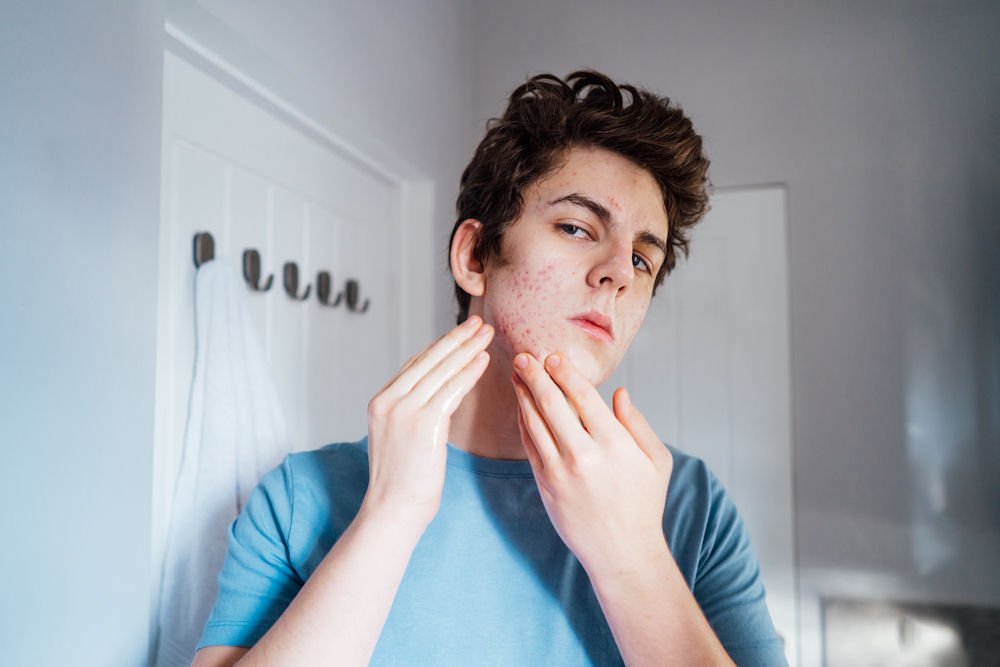Have you ever noticed your skin acting up after a night of heavy drinking? Well, it turns out that alcohol and your skin aren’t the best of pals. Alcohol can have a variety of negative effects on your body, some of which may not be immediately apparent. Given that your skin is your body’s largest organ, it’s particularly vulnerable to the negative impacts of alcohol.
Whether it manifests as dullness, breakouts, redness, or wrinkles, your skin can react to the toxins in alcohol fairly swiftly, often within hours of consumption. The good news is that by reducing your alcohol intake or completely quitting it, you can reverse most of the damage. In this article, we’ll explore some of the ways alcohol negatively influences your skin and provide tips on how to mitigate these effects.
Alcohol can affect your skin in many ways, causing various problems including:
One of the primary effects of alcohol on your skin is its remarkable ability to dehydrate. Alcohol can strip away the natural oils that your skin depends on for both moisture and protection. This dehydration often leads to skin that not only feels dry but also looks flaky. Over time, the cumulative impact of alcohol-induced dehydration can accelerate the development of premature wrinkles and fine lines, leaving your skin with an aged appearance that belies its actual years.
Alcohol's impact on the skin goes beyond dehydration. It also can dilate blood vessels, primarily in the facial area. This dilation can result in a flushed or reddened complexion, and it often makes broken capillaries more noticeable, especially in individuals with conditions such as rosacea or those who naturally have sensitive skin. Alcohol's vasodilatory properties aggravate these issues, potentially making them more visible and bothersome.
Furthermore, alcohol's impact on the skin isn't limited to dehydration and vasodilation. It can also serve as a trigger for inflammatory skin conditions. If you're already dealing with issues like psoriasis, eczema, or rosacea, alcohol has the potential to worsen your symptoms and may even cause flare-ups. The inflammation and irritation provoked by alcohol can intensify these conditions, making them more uncomfortable and increasingly challenging to manage.
While alcohol does not cause acne, it can contribute to the development of acne and skin problems by promoting clogged pores and bacterial growth as a result of dehydrated and imbalanced skin. Moreover, heavy alcohol consumption can slow down the healing of existing acne lesions, potentially making them more noticeable and troublesome, further exacerbating skin problems from alcohol.

In addition to the direct effects of alcohol on your skin, the overall nutritional impact of alcoholism can further wreak havoc on your skin. Here’s how:
Alcoholism can lead to an inadequate intake of essential vitamins, including A, C, and E, which are integral for maintaining skin health. These vitamins play a crucial role in collagen production, skin cell renewal, and overall skin health. Without sufficient levels of these vitamins, collagen synthesis and skin cell turnover slow down, resulting in dry, lackluster skin and an increased likelihood of wrinkles, further compounding skin problems.
Alcoholism can also contribute to vitamin B deficiencies, which can manifest as various skin issues. Vitamin B deficiencies, particularly B2 (riboflavin), B3 (niacin), and B7 (biotin), can lead to redness, cracking, and even dermatitis, adding to skin problems. These skin problems are often symptoms of an underlying nutritional deficiency.
Chronic liver damage caused by excessive alcohol consumption can disrupt vitamin A metabolism, which is essential for skin health. The liver's capacity to convert beta-carotene into retinol, the active form of vitamin A necessary for skin health, becomes impaired in the presence of a failing liver. As a result, your skin may not receive the vitamin A it needs to maintain its vitality and health, further contributing to skin problems. Recognizing these risks, seeking alcohol addiction treatment is crucial for those struggling with alcohol dependency to prevent such damage and promote overall health and well-being.
Sleep disturbances associated with alcoholism, such as insomnia and restless sleep, have a significant impact on your skin's aging process, exacerbating alcohol-related skin problems. During the night, your skin rejuvenates, repairs damage, and produces collagen. Lack of sleep disrupts these processes, causing a tired look, dark circles, and puffy eyes, intensifying alcohol's aging effects on your skin.
The type of alcohol you choose to consume can have varying effects on your skin, with higher alcohol content generally leading to more significant dehydration and irritation, potentially aggravating skin problems. Let’s delve into the specifics:
Now that you’ve stopped drinking, it’s time to start the journey of repairing your skin and restoring its health. Here are some essential steps to improve your skin health and reverse the damage caused by alcohol:
Alcohol has a dehydrating effect on your skin. To counter this, prioritize hydration by drinking plenty of water to rehydrate your body. Additionally, incorporate a fragrance-free moisturizer into your daily skincare routine, especially after washing your face. Seek moisturizers with hydrating ingredients like hyaluronic acid, glycerin, and dimethicone to restore your skin's moisture balance.
A balanced diet with fresh fruits and vegetables provides essential skin nutrients for thriving. Concentrate on foods rich in antioxidants, such as vitamin C, vitamin E, and beta-carotene, as they combat skin damage. Healthy fats from avocados, nuts, and olive oil aid skin health and regeneration for a quicker recovery.
If you're dealing with skin conditions that were exacerbated by alcohol use, such as acne, psoriasis, or eczema, consult a dermatologist. They can prescribe appropriate creams and treatments to address these issues effectively and help you combat skin problems from alcohol. Follow recommendations to clear skin and prevent future flare-ups, helping your skin regain its balance.
Lack of sleep and high stress levels can take a toll on your skin. Aim for 7 to 8 hours of quality sleep each night to allow your skin to rejuvenate. Practice yoga or meditation to reduce stress, benefiting your skin's health.
By making positive lifestyle changes and committing to a comprehensive skincare routine, you can undo the effects of alcohol abuse and restore your skin's health. Be patient throughout the process and stay motivated by noting the improvements in the mirror each week. Remember that your skin's renewal is within your control, and with dedication, you can achieve healthy, glowing skin once again.

Treatment for addiction typically involves a combination of medical, psychological, and social interventions. Creating a tailored treatment plan is essential for a successful recovery journey, meeting individual needs and circumstances.
If you or a loved one is struggling with addiction, there is hope and help available at Golden Gate Recovery. Break free from the cycle of addiction and embark on a journey to a healthier, happier life. Take the first step today by reaching out to our dedicated team, ready to support and guide you toward recovery. Your brighter future starts here.
Get confidential help! Call Us Now for:

Golden Gate Recovery is a grass roots organization created by men in long term recovery with a simple mission: to continue strengthening our therapeutic and peer led community toward the goal of long term recovery for each client.